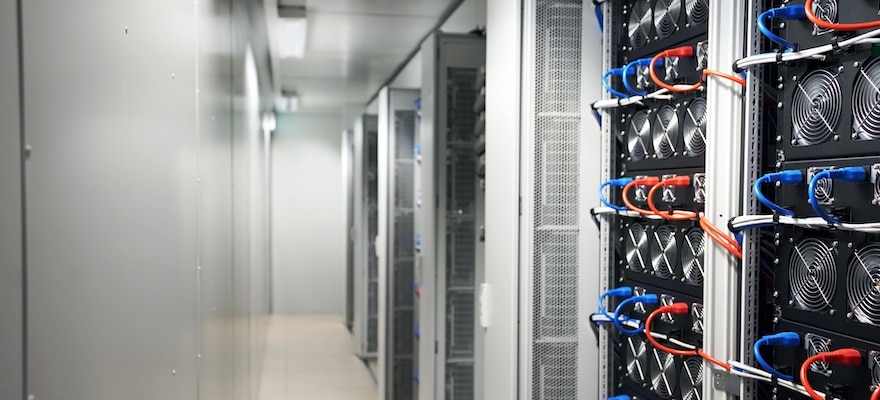It's been a while since Bitcoin's price went from interesting only a small niche of tech-savvy investors to being permanently installed in the front pages of financial newspapers.
In fact, the Cinderella of financial assets has made the headlines almost every day of this 2021... and there are good reasons to believe it won't stop doing so.
Reaching new heights
This Monday, more than one investor was surprised to wake up to the announcement that, in a highly anticipated —but still extraordinary move—, Tesla had purchased $1.5 billion worth of the cryptocurrency.
As it was explained, this acquisition intends to provide the company with the necessary liquidity to start accepting Bitcoin Payments : A first-mover operation, in style and custom with both Tesla and its unconventional CEO, Elon Musk.
After Tesla announced its purchase through an SEC filing, Bitcoin's price reacted: In a matter of almost an hour, the currency jumped by nearly $5,000 and powered through its previous all-time-high to settle shy of $47,000.
Waves of an unexpected technological reach
Bitcoin, the official debut of an innovative technology meant to convert computational power into a new, Internet-native currency has, unlike other assets, built its value from the very bottom.
The first Bitcoin users set the earliest Bitcoin transactions at marks of thousands of BTC per dollar, and the asset's value has continued to prove itself through time ever since.
Notably, in its short existence, both individuals and financial institutions have found the currency's value proposition reliable enough to consider it "a new kind of digital gold", which in turn has solidified its position as a vehicle to store value.
This, in turn, has created a nascent and growing ecosystem surrounding crypto assets.
To illustrate the great (and often unseen) engines powering and surrounding the crypto industry, one would need to look farther than its obvious, financially active players.
While crypto exchanges and institutions dealing with millions (or even billions) of dollars receive a fair share of coverage, it's also necessary to understand the technological operators powering this decentralized world.
To compute is to create
As an example, one company drifting away from the mainstream of crypto coverage would be Northern Data. The company, which's CEO and Founder, Aroosh Thillainathan, points to directly participate in the growing Bitcoin price, expects nine-figure revenues by providing stations for high-performance computing.
Northern Data approaches high-performance computing through a perspective of efficiency and sustainability to provide infrastructures that, among other computationally-heavy duties, can perform tasks such as Bitcoin mining, which by nature relies on cost-efficiency.
High Performance Computing (HPC) is serious business. Leading Northern Data's explosive growth from 8 to 150 employees and an expected 20x increase in annual revenue compared to 2019, Thillainathan reflects:
"In the course of the last few years, we identified an enormous and unprecedented demand for solutions in the field of high-performance computing. In parallel, there have been more and more new fields of application, with HPC no longer being used only in research, but also increasingly in industry. This was accompanied by more and more customers from all areas of HPC, especially large companies and corporations that need reliable, secure and cost-effective HPC computing power. Ultimately, our role is to apply expertise in technically demanding environments where high computing power is needed in the shortest possible time for these target groups. Technologies such as rendering, autonomous driving, cryptocurrencies or artificial intelligence demand our HPC infrastructure as well as our expertise in this context. We use this to help our customers, usually internationally operating corporations."
Unsung heroes
Because of the large amounts of energy they often require, companies such as Northern Data are ideal to power Blockchain applications.
And, to satisfy the growing demand for such infrastructures, the company has announced the expansion of its facilities in Norway and the opening of up to five new locations for HPC all over Northern Europe and Canada.
These facilities, equipped with mobile, state-of-the-art technology to generate green electricity capable of powering advanced computers, are also installed in remarkably short periods of time, with great flexibility and a low carbon impact.
Moving ahead, news like Tesla's recent additions will without a doubt be important to valuable industry players, such as Northern Data, that exist away from the media spotlight.
So far, companies in the cryptocurrency realm have had to deal with tremendous regulatory pressure and volatility swings, requiring their operations to be extremely lean and flexible to avoid unexpected struggles.
In this sense, the support of a leading manufacturer in the competitive automobile industry, particularly a player renowned for innovation and usage of green energies, means that, along with capital institutions, companies with business-to-consumer models will more likely be interested in incorporating Bitcoin and cryptocurrencies.
More so, the reliability of their business models will likely reflect towards other industries that also require innovation and great levels of HCP.
To Aroosh, Northern Data, and the behind-the-scenes professionals powering groundbreaking innovation, this is good news: It means that, moving forwards, they'll be able to sail calmer waters, knowing well enough that they’re capable of surviving even the harshest of storms.












